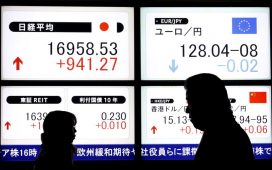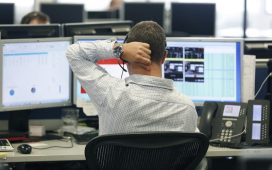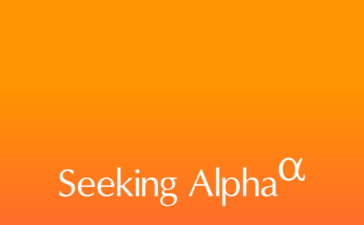Key events
EBRD: Ukraine needs more financial support

Larry Elliott
Ukraine needs financial support as well as military support in order to prevent the government in Kiev resorting to printing money to keep the economy afloat, the chief economist of the European Bank for Reconstruction and Development has said.
Interviewed in Davos, Beata Javorcik said that Ukraine’s economic situation was challenging, despite growth of just short of 5% last year.
Javorcik says:
“The big risk is that if money doesn’t come in from abroad things could spiral and the government might have to resort to the printing press. The government has done a very good job in ensuring macro-economic stability but we don’t want to have a failed state on our hands.
We need to support Ukraine not only militarily but through budget support.”
Javorcik said the EBRD was planning to invest between €7.5bn and €15bn over the next five years in Ukraine, with the focus on supporting the private sector.
She said there was a “substantial risk”, given the likelihood of the war continuing, of the economy being derailed.
Guterres pushes for risk management of AI
António Guterres also warned WEF that every new iteration of generative AI increases the risk of “serious unintended consequences”.
He cites a report from the International Monetary Fund this week that AI will probably worsen inequality.
He adds
“Powerful tech companies are already pursuing profits with a reckless disregard for human rights, personal privacy, and social impact.”
Guterres goes on to press Davos delegates to engage in the the UN’s push to develop a governance model for AI that is networked and adaptive.
He explains that his Advisory Body on AI has already made preliminary recommendations on AI governance, which would “ tap the benefits of this incredible new technology”, while mitigating its risks.
He adds:
We need governments urgently to work with tech companies on risk management frameworks for current AI development; and on monitoring and mitigating future harms.
And we need a systematic effort to increase access to AI so that developing economies can benefit from its enormous potential. We need to bridge the digital divide instead of deepening it.
On geopolitical crises, Antonio Guterres repeats his call for an immediate humanitarian ceasefire in Gaza, and a process that leads to sustained peace for Israelis and Palestinians, based on a two-state solution.
He says:
This is the only way to stem the suffering and prevent a spillover that could send the entire region up in flames.
Guterres also calls for a just peace in Ukraine, in accordance with the United Nations Charter and international law.
UN chief Guterres continues to say that the issues of climate and AI are exhaustively discussed by governments, by the media, by leaders here in Davos.
But there is no effective global strategy to deal with either, because geopolitical divides are preventing countries from coming together around global solutions.
It is little wonder that people everywhere are losing faith in governments, institutions, and financial and economic systems, he points out.
Guterres: We face a global crisis in trust
UN secretary general António Guterres has taken the stage here at Davos.
And he begins by warning that the world faces a “global crisis in trust”.
Rebuilding trust is the theme of this week’s WEF annual meeting, and Guterres says this crisis is due to a ‘paradox’ – that world leaders are failing to address clear risks.
He says
“In the face of the serious, even existential threats posed by runaway climate chaos, and the runaway development of Artificial Intelligence without guard rails, we seem powerless to act.
As climate breakdown begins, countries remain hellbent on raising emissions.
Our planet is heading for a scorching three-degree increase in global temperatures,
Droughts, storms, fires and floods are pummeling countries and communities.”
Guterres says he has witnessed the dramatic receding of Himalayan glaciers, and the accelerated melting of the ice sheet in Antarctica.
Guterres points out that 2023 was the hottest year on record – but might be cooler than future years.
He declares:
“The fossil fuel industry has just launched yet another multi-million-dollar campaign to kneecap progress and keep the oil and gas flowing indefinitely.
Let me be very clear: the phaseout of fossil fuels is essential and inevitable. No amount of spin or scare tactics will change that. Let’s hope it doesn’t come too late.
We must act now to ensure a just and equitable transition to renewable energy.”
Antony Blinken sums up the situation today, by saying he can’t think of a time when there has been a greater multiplicity of challenges.
And that means the US must work with allies – as virtually none of the problems that Washington want to address can be done in isolation
And when it comes to the hard things, he concludes, “when you are going through hell, keep going”.
Blinken then says that Taiwan plays an outsize role in the world, although it is small, due to its geography and its ingenuity.
He warns there would be serious consequences for the world economy if supplies of Taiwan’s semiconductors were disrupted.
Other countries say this to China too, he says, as everyone has the same interests.
Asked about Russia’s alliances, Blinken jokes that in diplomacy, sometimes you see collections of countries coming together and you’re reminded of the famous bar scene in Star Wars.
Asked if were anywhere near a ceasefire in Ukraine, Blinken says ‘I don’t think so’.
He says Vladimir Putin is prepared to keep putting his young men into a meat grinder war, which is a profound tragedy.
But he can see a future where Ukraine stands strongly on its own two feet.
Blinken: big mistake to tear up Iran nuclear deal
Blinken is then asked about Donald Trump’s decision to tear up the Iran nuclear deal in 2018.
This was a “ big mistake”, Blinken replies.
He says that that deal meant the Iranian nuclear programme was in a box – but it has now escaped from that box. So we are now in a place where we don’t have the agreement we need.
It is deeply unfortunate, he adds.
Blinken: I think it was a big mistake to tear up the Iran nuclear agreement. We had Iran’s nuclear programme in a box. Since the agreement was torn up, it’s escaped from that box. And we’re now at a place where we didn’t want to be because we don’t have the agreement. #Davos2024
— Jack Dutton (@jackvdutton) January 17, 2024
Blinken: What we’re seeing in Gaza is gut-wrenching
Q: Are Jewish lives more valuable than Muslim and Palestinian Christian lives, given the asymmetry in casualties in the Israel-Hamas war?
“No, period”, Antony Blinken insists.
Asked at Davos if Jewish lives matter more than Palestinian and Christian lives, Blinken says categorically no – @Reuters
— Dan Williams (@DanWilliams) January 17, 2024
Blinken says that for him, and for so many of us, what we are seeing nearly every day in Gaza is gut-wrenching, adding:
The sufffering among innocent men, women and children breaks my heart.
Blinken says what we’re seeing in Gaza is gut-wrenching; the suffering breaks my heart; the question is what is to be done – @Reuters
— Dan Williams (@DanWilliams) January 17, 2024
He insists that the US pressed Israel about its responsibilities every step of the way, meaning there were “several dogs that did not bark”, but adds:
That in no way takes away from the tragedy we have seen and continue to see.
He adds that no country would accept a repeat of October 7th, and that it is hard to overstate the psychological impact on Israel of what happened on that day.
Blinken points out that some people even refuse to accept that October 7th happened.
The biggest poison we face around the world is dehumanisation, he continues, ie “the inability to see the humanity in the other”.
We need to remove that poison, which means leaders around the world who see that, and are prepared to act on it, Blinken adds.









